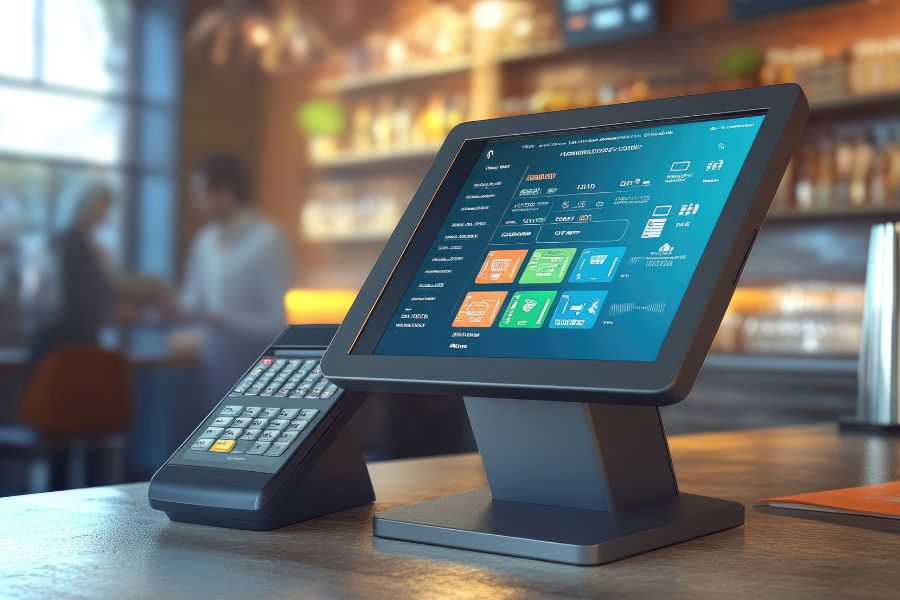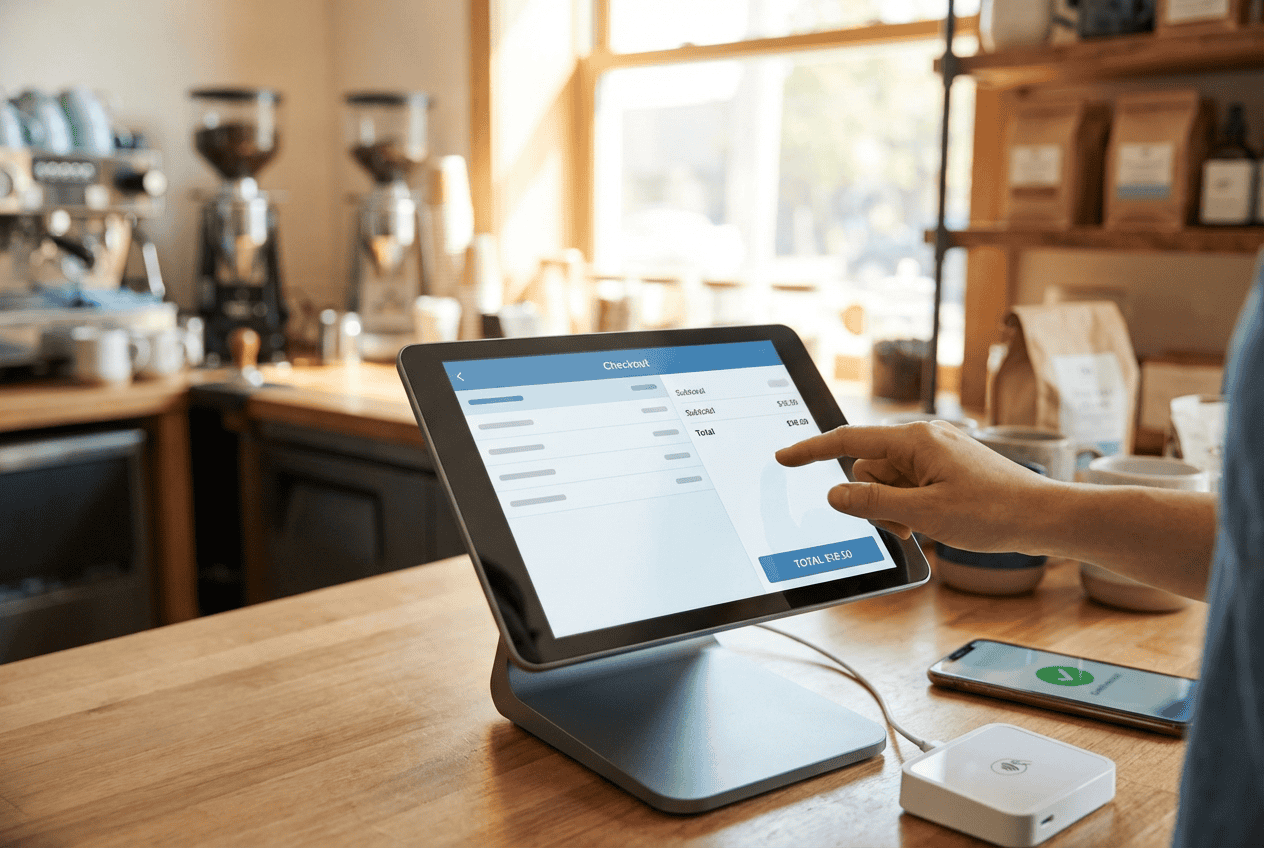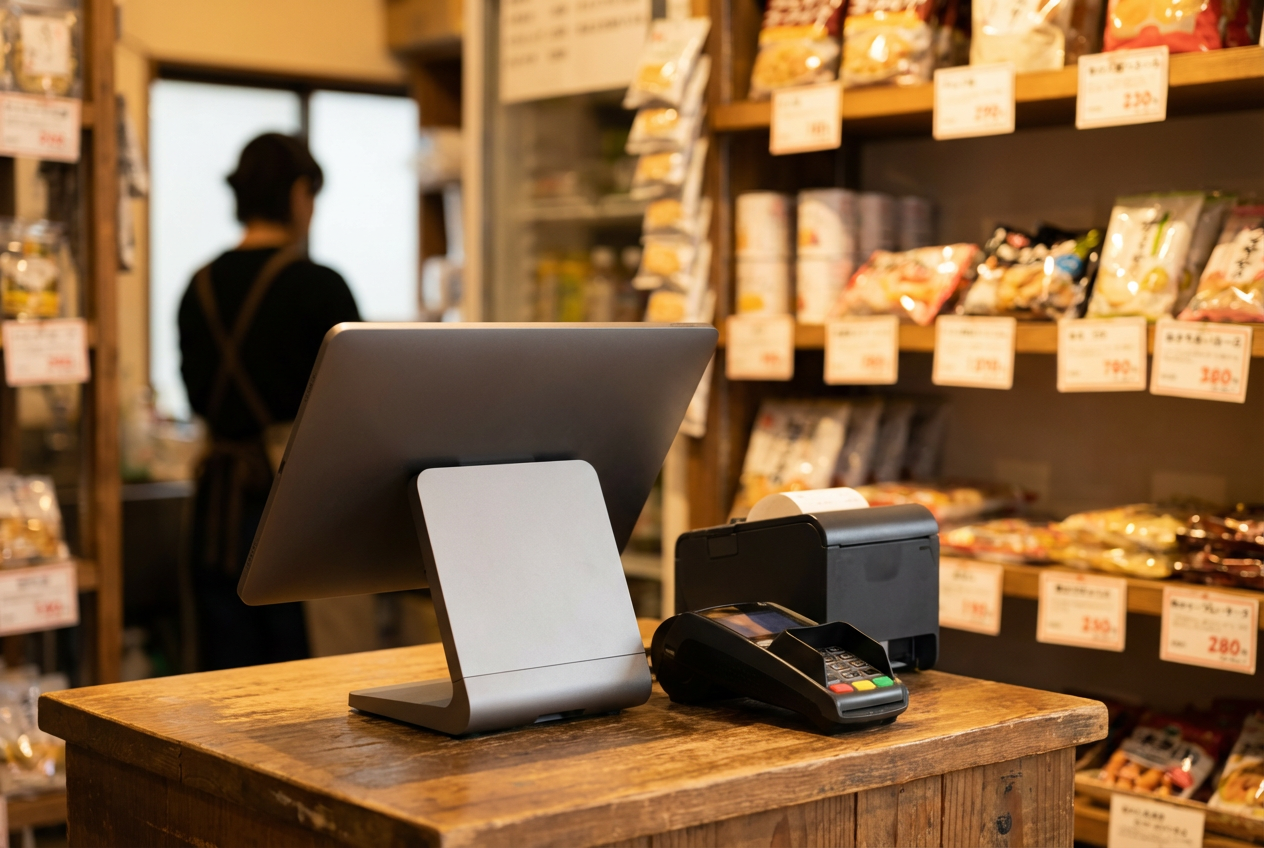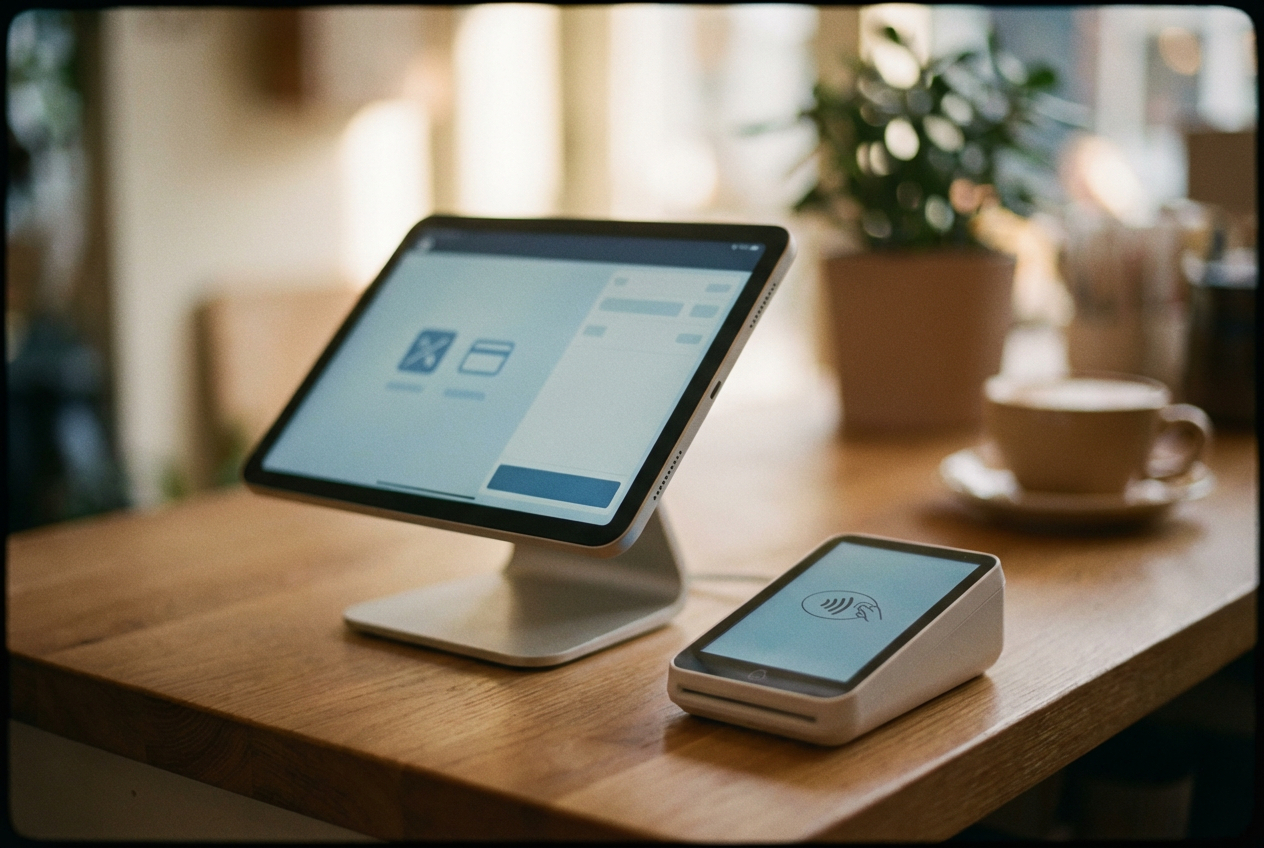Choosing the right point of sale (POS) system is a key decision for any business that wants to streamline operations and deliver better customer experiences. SAP Point of Sale software is one option that many retailers consider, as it offers integration with SAP’s broader ecosystem. However, businesses often wonder if this solution matches their needs in terms of cost, flexibility, and usability. This article explores the features, strengths, and challenges of SAP POS to help you decide if it is the right fit. For the most updated and tailored answer, you can always reach out to ConnectPOS for expert guidance.
Highlights
- SAP POS is a retail solution that merges in-store transaction management with enterprise-wide data integration through the SAP ecosystem.
- SAP POS is best suited for large or fast-scaling retailers that need advanced features, global compliance, and tight integration with SAP systems.
What Is SAP POS?
SAP Point of Sale (POS) is a retail management solution that combines the transactional power of traditional POS systems with the data control and integration strengths of the SAP ecosystem. It’s built to handle in-store sales while connecting seamlessly with SAP’s broader enterprise tools like SAP ERP, SAP CRM, and SAP S/4HANA.
This means retailers can process payments, manage promotions, and handle returns at the store level, while syncing that activity in real time across inventory, finance, and customer relationship systems. SAP POS also supports centralized pricing, stock visibility, and customer data, making it easier to deliver unified service across brick-and-mortar stores, eCommerce, and mobile channels.
Its ability to tie store-level operations into enterprise-wide reporting and planning gives retailers a clearer picture of performance, helping them make faster, more informed decisions.
Key Benefits of SAP – Point of Sale Software
SAP POS gives retailers a robust toolset to manage in-store operations while tying them back to enterprise systems. It supports operational consistency, improves data accuracy, and brings greater visibility across the retail business.
- Enterprise Scalability
SAP Point of Sale is built for high-volume, multi-location environments. It supports complex retail structures, including those with multiple brands, regions, or business units.
Global retailers can take advantage of built-in support for country-specific tax rules, language settings, and regulatory compliance, making it suitable for international operations.
- Centralized Data and Real-Time Reporting
SAP POS consolidates transactional and operational data – sales, inventory, and finance, into a single system. This structure reduces data fragmentation and improves accuracy.
Real-time reporting gives managers immediate access to performance metrics, letting them monitor trends, stock levels, and customer activity without delay.
- Seamless Integration with SAP Ecosystem
One of SAP POS’s core strengths is its ability to integrate with SAP enterprise systems like SAP S/4HANA, SAP ERP, and SAP Business One. These connections create a continuous data flow between store operations and backend systems.
►►► Optimal solution set for businesses: Multi store POS, Next-gen POS, Inventory Management Software (MSI), Self Service, Automation, Backorders

This eliminates the need for manual data handling and allows for synchronized updates across inventory, finance, and customer records.
- Support for Omnichannel Retail
SAP POS extends beyond the register. It supports cross-channel promotions, shared loyalty programs, and flexible fulfillment options such as click-and-collect or ship-from-store.
By syncing in-store and online activity, retailers can deliver a unified customer experience across all sales channels.
Is SAP POS Right for Your Business?
Choosing SAP POS depends on how complex your operations are and the level of investment you are prepared to make. The software delivers advanced capabilities, but it also requires significant resources to implement and maintain.
1. Best Fit for Enterprise or Rapidly Scaling Businesses
SAP POS is well-suited to large or fast-growing retailers that manage multiple locations, high transaction volumes, or complex supply chains.
Organizations operating in multiple countries also benefit from its ability to adapt to local tax, language, and compliance needs.
However, for small or independent retailers, SAP POS may be more than necessary. The infrastructure and expertise required often exceed what’s practical for businesses looking for basic POS functionality.
2. Technical and Financial Considerations
Implementing SAP POS involves more than a software license. Costs include hardware, integration with existing systems, and ongoing support.
The system typically requires experienced IT staff or certified SAP consultants to manage setup, updates, and troubleshooting.
While enterprises often see long-term benefits in operational control and reporting, smaller businesses may find the investment difficult to justify.
3. Need for Customization and Flexibility
SAP POS can be tailored to specific business needs, from region-specific workflows to integration with other SAP modules. This flexibility makes it adaptable to different retail models and operational structures.
That said, customization can increase complexity. Development and testing require time and technical resources, and ongoing adjustments may need continued support.
Businesses should assess whether the flexibility is essential or if a simpler system would meet their needs with fewer complications.
In short,
- SAP POS is a strong choice for enterprises and rapidly scaling businesses that need advanced features, global compliance, and deep integration with SAP’s ecosystem.
- For small or mid-sized retailers, however, the cost, complexity, and technical requirements may be excessive. In these cases, a lighter POS solution might deliver more value with less overhead.
Alternative Solutions for SMEs and Specialized Retailers
For small to mid-sized businesses and niche retailers, lightweight POS systems can be a better fit than SAP POS. These solutions are designed to be agile, easier to set up, and more cost-effective.
Cloud-based options such as ConnectPOS offer strong omnichannel support, allowing businesses to unify online and offline sales, run promotions across channels, and manage loyalty programs with minimal setup time. They also scale easily as the business grows, without requiring heavy IT resources.
| SAP POS | Modern Cloud POS | |
| Cost | High-cost | Subscription-based and more affordable |
| Flexibility | Offers deep customization but requires technical expertise | Delivers ready-to-use flexibility with simple configurations |
| Speed of Deployment | Take months | Be set up within days |
| Integrations | Integrates with the SAP ecosystem | Connects easily with eCommerce platforms, marketplaces, and third-party apps |
| Deployment Model | Often on-premises or hybrid, requiring servers and IT infrastructure | Fully cloud-based, accessible anytime through web or mobile |
| Maintenance and Updates | Requires manual upgrades and technical support teams | Automatic updates with minimal downtime |
| Customization | Highly customizable but resource-intensive | Offers flexible configurations and ready-made integrations |
How ConnectPOS Complements or Replaces SAP POS
ConnectPOS provides retailers with a cost-effective alternative to SAP Point of Sale software, offering agility and scalability without the heavy technical and financial demands. It is designed to support omnichannel businesses, delivering a seamless experience across physical stores, eCommerce POS platforms, and mobile sales channels.
Key strengths that ConnectPOS offers:
- Integration capabilities: ConnectPOS connects with major ERP systems, including SAP, allowing businesses to maintain their existing infrastructure while upgrading their POS operations.
- User-friendly interface: The system is easy to learn and operate, reducing training time for staff.
- Real-time synchronization: Sales, inventory, and customer data update instantly across all channels, minimizing errors and improving efficiency.
- Advanced retail features: ConnectPOS supports order fulfillment options such as click-and-collect, ship-from-store, and pre-orders. It also includes strong inventory management and loyalty program tools to enhance customer retention.
For enterprises that need a flexible complement to SAP or SMEs seeking a complete replacement, ConnectPOS delivers a modern, agile POS solution tailored to omnichannel retail.
To Sum Up
SAP Point of Sale software offers powerful capabilities for enterprises managing complex operations, global compliance, and multi-location retail networks. However, its high costs, technical requirements, and lengthy deployment process make it less practical for smaller retailers or those seeking fast, agile solutions.
For businesses that need scalability, flexibility, and strong omnichannel support without heavy infrastructure, cloud-based systems like ConnectPOS provide a compelling alternative.
ConnectPOS combines real-time synchronization, seamless ERP integration, and advanced retail features in a user-friendly platform that fits both SMEs and larger retailers aiming to modernize their operations.
Contact ConnectPOS today to explore how we can complement or replace SAP POS for your business!
FAQs: SAP Point of Sale Software
What types of businesses benefit most from SAP POS?
SAP POS is best suited for large enterprises, global retailers, and rapidly scaling businesses. Companies with complex supply chains, multi-location operations, and high transaction volumes benefit the most from its scalability, real-time reporting, and integration with SAP’s ecosystem.
Is SAP POS too expensive for SMEs?
For many SMEs, SAP POS can be too costly. The licensing, infrastructure, and ongoing maintenance require significant investment and technical expertise. Smaller retailers often find cloud-based POS solutions more affordable and easier to deploy while still gaining strong omnichannel capabilities.
Can SAP Point of Sale software integrate with third-party eCommerce platforms?
Yes, SAP POS can integrate with third-party eCommerce platforms, but it often requires additional configuration or middleware. Enterprises with skilled IT teams or SAP consultants usually manage these integrations. For retailers seeking quicker and simpler connections to platforms like Shopify, Magento, or WooCommerce, modern cloud POS solutions may be more efficient.
►►► Optimal solution set for businesses: Shopify POS, Magento POS, BigCommerce POS, WooCommerce POS, NetSuite POS, E-Commerce POS




